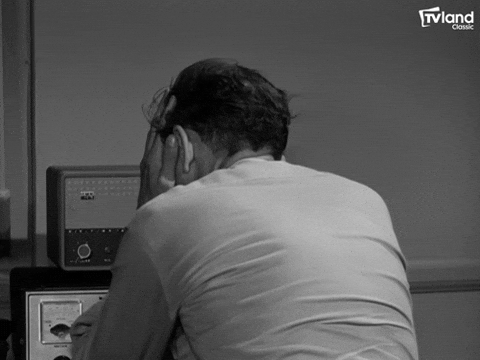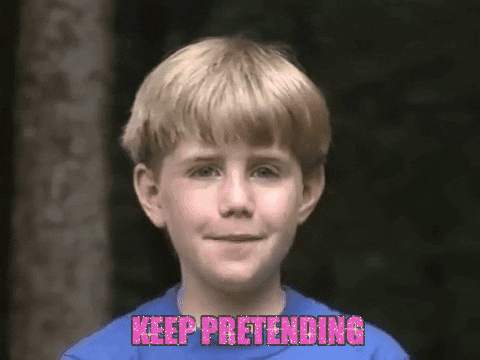One of the things that each of us does daily is adapt to different situations—the worst part of adapting lies in the fact that it is so difficult. But some tools can be put into practice to make the process much easier and to help you master your emotions to prevent burnout.
What is adapting, anyway?
Based on adapting your behavior, lie the two styles we all have inside of us:
- Natural style
- Adapting style.
You can recognize your natural style as the one you use when you are simply relaxing on the couch at the end of the day, or at the moments you are under a lot of stress.
But your other style is what you put on as a mask, primarily when you work. You are putting on the style you believe your work environment requires you to have, an Adapting style.
The key to difficulty in adapting is that every time you use the Adapting style, you might end up going above or below what we call our energy line.
The real reason you are dead tired after a day at work
The energy line is a midway point for each of us, our 50 percent line. When you cross this line by behaving differently from what your Natural style would prefer, you lose energy. The danger lies in repeating this behavior consistently. If you adapt your behavior all day long, you will cross your energy line so much that you will feel dead tired at the end of each day or each week. Each personality style based on the DISC Method will have its energy line.
This graph can show it, and we use it to explain personality traits after a DISC assessment has been done. You can use the lines here to visualize an energy line.

When assessing which personality style is someone, we scale people from zero to 100 in terms of their traits. Anything that’s above 50 is one of your dominant styles. Anything less than 50 is non-dominant and will not necessarily appear on your graph, but it will affect your behavior. In other words: everything below 50 are traits you will need to mostly fake when you are in your adapting style of behavior.
When you are pressured to do that, you will be able to do it, but it will take energy and drain you. And that’s because we’re crossing that midline. Knowing your personality style makes you aware of what will drain you. You can be prepared for the stress response you naturally have and make it easier on yourself and others.
Long term adapting = burnout
Anyone who has to adapt their behavior over a long time will (!) create burnout for themselves. That’s key to keep in mind.
This applies to anyone, as it is impossible to keep up adaptive behavior forever. That’s why anyone who has to adapt every day, all day, has to make some adjustments in life. In other words, it is necessary to find outlets: on the weekend, in nightlife… Anything to prevent burnout.

That is also a reason why nowadays, a lot of major corporations are providing built-in distractions. Some of the outlets used are exercise programs, wellness programs, social activities within the work hour, and board game breaks. Whatever it is, the point is to allow them to have a break from tasks that are unnatural to their personality.
However, the best practice is prevention. Using job benchmarking and hiring people to roles and areas where they don’t need to adapt so much. That way, they can live in that job, love it, and be fulfilled by it. That’s the key if retention.
Practical application
The most significant adaptations come from our diagonals and diagonal opposites. So that’s Ds working as Ss, Is working as Cs, and then, of course, S working as Ds and Cs working as Is.
If you use the DISC assessment and discover you are a High D and need to adapt to an S style behavior, you will need to slow down. S style is all about emphasizing and actively listening. So a D style has to understand that sometimes people just want to be heard and not be given a solution to a problem as a response. So, slow down. Actively listen and use mirroring techniques.
In a parallel universe, an S has to adapt to a High D. In that case, High S must pick up a pace. Ds are all about quick and tough decisions, so as an S, make sure you stay on task and not put it off.
If you are a High I and need to work as a C personality, it will not be easy. As an I, you are outgoing and fun, while a C personality is all about objectiveness, analytics, and things you are not a fan of. So you do have to make sure that you’re getting specific directions, that you’re doing check-ins, and that you are not as friendly as you usually like. A C doesn’t want to get too personal; they just want to follow directions. So make sure you check in that you are on the right track from time to time. You know you get easily distracted. 😊
On the other side of the coin, if you are a High C and need to behave as an I, you want to be more friendly, people-oriented, and simply smile more. You need to show a bit more energy and become more interactive with others than you usually feel comfortable doing. Implementing humor in your performance would also be a great adaptation, so feel free to Google the dad joke and use it. You will be surprised how well that goes over.

We are all humans
In all these examples, it is evident that there is a lot of effort to become who you are actually not. But remember: we are all doing it, and we are all pretending to be something we are not, and the fact that we put in the effort will give us positive results.
All those people you know will appreciate the small things you are doing and how out of your way you are going because we are all human beings. We do appreciate the effort.
Just put yourself in other people’s shoes.
But first, learn who you are as a personality. That’s the only way to know where you need to put in the extra effort. You can take the DISC assessment here.
Learn more about yourself, and try to find a place under the sun where your adaptation will not be constant and difficult. Because if you don’t, burnout is inevitable.

